Why are you doing this?
A useful first step is to understand if there is an identified need that the proposed place, thing or event will meet and if there is a shared community desire for it. It is also important to consider who will lead and drive the project. Good project planning is needed to turn ideas into achievable actions and clear deliverables.
What do you want to achieve?
Consider both the process and the end result. Successful community projects are inclusive and collaborative. They are just as successful at building community and individual capacity and connections as they are at creating places, things or events.
Who is available to help?
People are the most important resource in a project. Consider who will lead the various steps. Who are the other people, groups and agencies that might contribute the necessary energy, time, commitment, creativity, diversity, skills, knowledge, experience, connections to business and other community members, project management, financial and material resources, labour, and guardianship?
Are there existing groups that do or have done similar projects? Christchurch is full of passionate people doing great work in their communities. Ask around to see if there is a group that you can join or get involved in your project. People from groups that have successfully created projects can also be a great mentoring source.
How much time will it take?
The amount of time required to plan, design and deliver a project can vary greatly depending on what it involves. Sometimes it is the smallest or unexpected things which can hold a project up. See Place-making ideas and local success stories to get an idea of what you need to allow for in terms of timeframe. Don't be put off if the timeframe is longer than expected. Often the best results come from taking the time to connect with others to plan and promote your project.
Talk to your local Council Community Development Advisor (CDA(external link)) or Community Recreation Advisor (CRA)(external link) about your idea and the things you may need to consider.
Which tools will you use?
There are a range of tools available to help you plan, design and deliver your project. Before getting started, identify which tools you’ll use to deliver the best results. See Helpful tools, resources and organisations.
What size budget do you need?
This will vary greatly depending on what you are planning to do. It is a good idea to have at least a small budget to account for possible venue hire or materials. See Funding your project.
You can also ask your local CDA/CRA(external link) for advice on sources of funding for your project and how to access free or discounted community equipment and resources.
What potential issues or problems may occur?
A number of issues or problems may occur when implementing your project, whether anticipated or unexpected. These may be generated by division within the community, by the need to obtain access to the project site, obtain regulatory consents and/or secure funding and other assistance. The following may assist:
| Issue or problem | Tips to consider |
| No support from local community. |
Discuss your idea with others in the community. Does your project need to be tweaked to encourage wider community buy-in? Think about existing community groups in your area that could help you to develop your idea. Use the Council’s CINCH database, or talk to your local Community Development or Recreation Advisor (CDA/CRA(external link)), to find any such groups. |
| Starting a new group when an existing group is doing a similar project. |
Consider joining or working with the existing group on this project. One group is a lot more effective than two groups working separately. You also don't want to split community time, energy and money on two projects. |
| Engaging with the Council. |
The Council is a big organisation with many functions and sometimes conflicting processes and requirements. Your local CDA/CRA(external link) is able to help you find the right people to talk to. |
| Obtaining necessary land owner permissions and/or regulatory consents. |
Consider:
Contact your local CDA/CRA(external link) to run through your idea first before you commit too much time, cost and effort to it. They can help you find out what, if anything, is required and how to get it sorted. |
| Meeting criteria for funding assistance. |
Your local CDA/CRA(external link) can help you identify potential funding sources and advise on how your project could meet the associated eligibility criteria. |
| Expecting the Council to make your idea happen. |
The Council doesn’t have the capacity to do everything and must focus its limited resources in identified priority areas. Are there people with enthusiasm, energy and commitment in your community who can help to lead and deliver place-making projects? Contact your local CDA/CRA(external link) for advice as to the extent to which the Council may be able to help, if needed. |

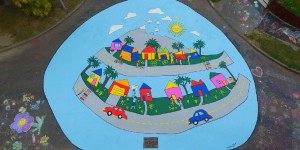 Determine what you want to do, why, who is available to help, how long it will take, what size budget you’ll need and if an ongoing commitment is required. This could include preparing a feasibility study and/or business plan.
Determine what you want to do, why, who is available to help, how long it will take, what size budget you’ll need and if an ongoing commitment is required. This could include preparing a feasibility study and/or business plan.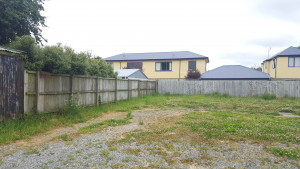 Think about the issues and evaluate the proposed space for your project. This could include a SWOT analysis of its strengths, weaknesses, opportunities and threats.
Think about the issues and evaluate the proposed space for your project. This could include a SWOT analysis of its strengths, weaknesses, opportunities and threats.  Create a clear vision of what you want to achieve.
Create a clear vision of what you want to achieve. 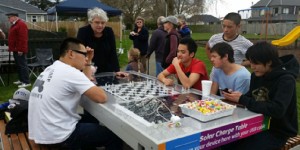 Determine what potential issues or problems may occur as the project unfolds. These may include seeking landowner permissions and/or regulatory consents.
Determine what potential issues or problems may occur as the project unfolds. These may include seeking landowner permissions and/or regulatory consents.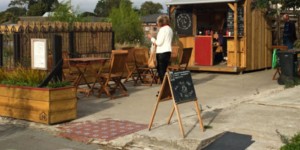 Think about creative solutions or potential partners that can contribute to your project and help keep costs down.
Think about creative solutions or potential partners that can contribute to your project and help keep costs down.  What are the things that need to happen to ensure your project is delivered successfully? In addition to advice from the Council, see
What are the things that need to happen to ensure your project is delivered successfully? In addition to advice from the Council, see 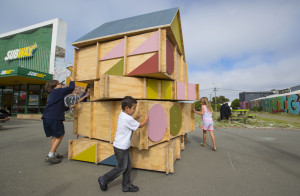 The delivery of a community plan, for example, may anticipate the implementation of capital works by the Council (physical works, such as new buildings, street upgrades etc.)
The delivery of a community plan, for example, may anticipate the implementation of capital works by the Council (physical works, such as new buildings, street upgrades etc.)